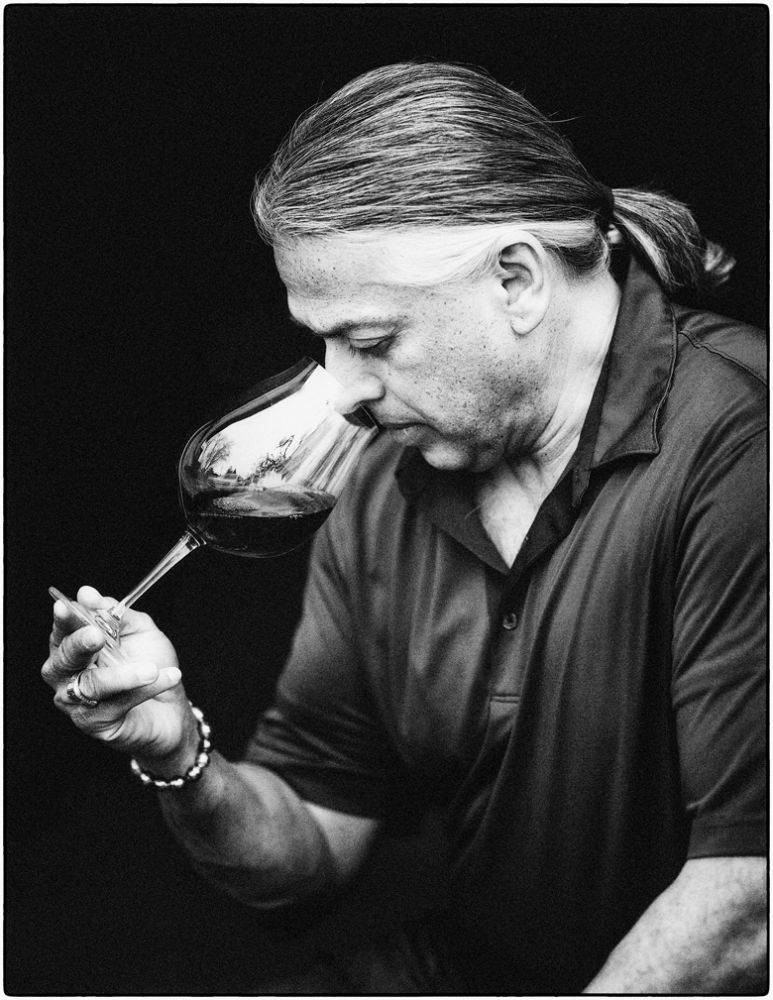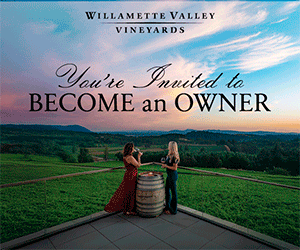Q&A: Billo Naravane MW
CEO of Walla Walla’s Rasa Vineyards

Yashodhan “Billo” Naravane is the co-founder and CEO of Rasa Vineyards, an artisanal, world-class winery he founded with his brother in Walla Walla, Washington, in 2007. He attended U.C. Davis and earned an M.S. in Viticulture and Enology in 2008. In addition to his duties at Rasa Vineyards, Billo provides consulting winemaking and viticulture services through his consulting company, Vinous Consulting (vinousconsulting.com). He enjoys helping other serious wine aficionados realize their artistic visions for their wines and grapes.
Prior to making the transition to the wine industry, Billo studied Mathematics and Computer Science at the Massachusetts Institute of Technology and Electrical Engineering at Stanford University. He also worked as a consultant and manager at several technology companies including Oracle, Netscape, and Hewlett Packard. He is incredibly thankful that he hasn’t written a line of code in approximately 15 years.
In 2017, Billo became a Master of Wine— the highest professional certification in the wine industry. He is one of the relatively few, (less than 30) Masters of Wine worldwide that is also a winemaker. When not making wine, teaching about wine, or drinking wine, Billo can oftentimes be found tinkering on the piano, reading Spiderman comic books or smoking a fine cigar.
What made you first become interested in wine?
BN: After getting my undergraduate degree from M.I.T. in 1990, I started working at Oracle Corporation in Silicon Valley. My friends and I quickly discovered that Napa Valley wasn’t too far away and we could taste wines all day without paying anything. Tasting fees were not common then. I like to think that I’m partly to blame for their implementation at Napa and Sonoma wineries in the mid-90s– please don’t hate me.
In 1991, I had the opportunity to taste a 1986 Chateau d’Yquem at Beltramo’s wine shop in Menlo Park. At that time, I knew nothing about wine and had never even heard of Sauternes– but that first sip of Yquem was simply magical. I was captivated by the wine and could not explain why; I had never tasted anything like it before.
Earning my M.S. degree at Stanford in 1993, my brother, Pinto, came to celebrate. We went to a local wine shop for a bottle to accompany dinner. Pinto spotted a 1988 Chateau Mouton-Rothschild. It was $70, a princely sum for me back then. Pinto splurged, buying the bottle. We tasted the Mouton-Rothschild over the next 3 days… it just kept getting better and better. After tasting this profound bottle, I was totally hooked and began reading all the wine books I could find, joined tasting groups and more. I was all in.
After earning math, computer science and electrical engineering degrees from M.I.T. and Stanford, what compelled you to attend U.C. Davis and then pursue the Master of Wine title?
BN: Initially, I liked working in the tech industry, but it quickly became a grind. The never-ending cycle of insane project timelines and management bureaucracy got to me and I gradually lost interest in coding and technical projects. I found myself in a soulless career without any passion for it. I knew that a major change was needed. In 2000, Pinto and I started talking about leaving tech and starting a winery. By 2005, I was burned out and decided to learn to be a winemaker… so I applied to U.C. Davis, the best program I knew. I received my acceptance letter from the Viticulture and Enology graduate program in March 2006. When I shared the news with Pinto (who was turning 40) and asked if he was interested in starting a winery, he responded with a resounding, “Are you freaking kidding me? Hell yeah, I’m interested!”
I became interested in the Master of Wine program after attending a 2001 lecture in Austin with DC Flynt MW on the wines of Burgundy. His eloquence and obvious mastery of the topic was extremely impressive. DC gave me some information about the MW program. I did some further research and learned about the difficult nature of the exam and extremely low pass rate. I was very intrigued by the challenge, the wine world’s Mount Everest. After some initial attempts at the MW exam in 2009-2010, I took a break from the program. In 2013, after some soul searching, I decided that yes, I did want to become an MW and began taking the journey more seriously. I posted a sign on my office wall that read “Billo Naravane MW” and fully committed myself to the endeavor in both heart and mind. In 2015, I passed the theory portion of the exam; in 2016, the tasting portion. The following year I completed my research paper and became a Master of Wine. Woo-hoo! The process forced me to face my shortcomings in writing and communication and fill in my gaps of knowledge (there were many) in various aspects of the wine industry. It was grueling and painful at times, but it was all worth it.
How do you find working with your brother at Rasa Vineyards, the Walla Walla winery you founded together?
BN: It is hard to believe that Pinto and I started Rasa Vineyards, a small artisanal brand in Walla Walla, 16 years ago. Time indeed flies when you are having fun! We perform aspects of the winery’s business together: winemaking, sales, distribution, and marketing. Overall, Pinto and I get along great and usually fully agree on the business direction, but occasionally there are minor disagreements. In those instances, we rely on a small network of advisors for counsel. Starting a winery has been a dream come true, and that much sweeter doing it with a sibling I love and trust.
How does your consulting winemaking work differ from Rasa Vineyards?
BN: My tech background was in computer consulting services. The consulting skillset is essentially the same whether it is in tech or winemaking. As a consulting winemaker, I have to create wines that satisfy my client’s wishes and objectives. Rasa Vineyards is a collaborative effort between me and my brother. The consulting projects are collaborative efforts between myself and owners of the respective wineries for whom I provide consulting services. I established my consulting company, Vinous Consulting (vinousconsulting.com) in 2008 and work with several wineries, including: Dossier Wine Collection, Rivaura, RR Poet and Echo Ridge Cellars. Each project is incredibly fun and gratifying due, in large part, to the innovative and intelligent people. I assist my clients in securing optimal grapes, sourcing the finest oak, creating winemaking strategies and finalizing blends prior to bottling. In essence, I provide A-Z services, from grape to bottle. On a personal level, I find it extremely fulfilling to help other wineries achieve their goals and dreams. And I get paid to do it! In every instance, whether the wine is for a client or for Rasa, I strive to make the very best wine that I can– without compromise.
Your thoughts on Northwest wine? Favorites (varietal, brand and/or region)?
BN: As a variety, I love Pinot noir for its profound ability to convey terroir of the vineyard and microclimate. In my opinion, the finest domestic Pinots are from Oregon, particularly the Willamette Valley. Within the Valley, one can find a diverse range of intriguing terroirs that produce a fascinating array of Pinot Noirs, from light, ethereal wines with finesse and elegance to more robust, structured wines with darker fruit profiles. I am particularly fond of the following sub AVAs: Ribbon Ridge, Dundee Hills, Eola-Amity Hills and Chehalem Mountains. Some producers that I would strongly recommend include: Ribbon Ridge Winery, Beaux Frères, Domaine Serene, Flâneur and Limited Addition.
For Rhône varieties, there is no better place in the U.S. than The Rocks District of Milton-Freewater AVA. Rasa Vineyards owns 25 acres there. Wholly contained within the larger Walla Walla appellation, The Rocks is situated entirely within Oregon state and is an alluvial fan consisting of basalt cobblestones. It is tiny (~3700 acres) in comparison to other designated wine regions, but possesses a unique, and utterly compelling, terroir. The Syrah and Grenache grown there are incredibly perfumed with soft, powdery tannins and compelling minerality on the finish. The terroir is so distinctive that wines from this area are easily identified in blind tastings. For a solid introduction to the growing region, I would recommend tasting the wines of Rasa Vineyards (of course!), Force Majeure, Cayuse, Sleight of Hand and Rotie Cellars.










